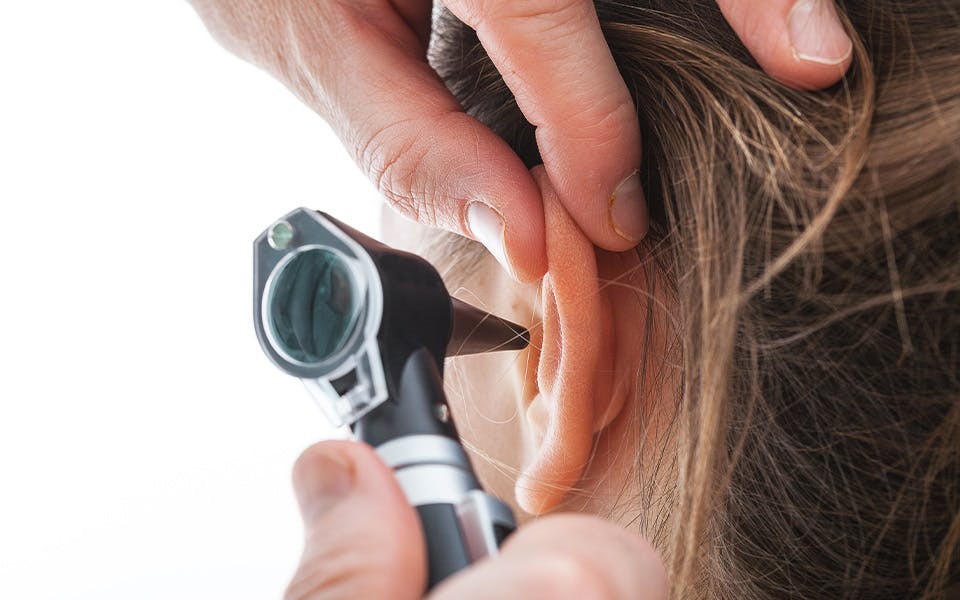It’s an ear exam performed by an audiologist, ENT specialist or primary care physician. An otoscope, or auriscope, is a medical device that allows your doctor to look at your middle ear and eardrum.
Do I Need an Otoscopy?
Otoscopies are often recommended if have head trauma, frequent ear infections or ear pain. You’ll also receive an otoscopy during a hearing test to assess if a middle ear issue is causing hearing loss. Audiologists use otoscopies to determine if your middle ear is blocked by earwax, fluid or swelling. Those factors may affect your ability to complete a hearing test.
What Happens During an Otoscopy?
You may be asked to flex your facial and neck muscles to evaluate if those movements affect your eardrum, especially if you have ear pain or swelling. Your physician or audiologist will look at your outer ear and note any irritation, inflammation or drainage.
He or she will use an otoscope, a handheld device with a light and magnifying lens that helps them see inside your ear canal. The cone of the otoscope is inserted into your ear while your doctor gently pulls your earlobe in different directions to view your middle ear.
Some otoscopes have a mechanism that produces a puff of air to see if stimulation elicits a reaction from your eardrum.
Potential Risks and Complications of Otoscopy
Discomfort can occur during an otoscopy if you have an ear infection or swelling. There is a small risk of puncturing or irritating your eardrum with the tip of the otoscope, which presents the possibility of infection. However, that complication is unlikely.
You could also experience dizziness or vertigo during or after an otoscopy because your middle ear contributes to balance regulation. Nausea and vomiting are other potential side effects.
Understanding Otoscopy Results
The visual nature of an otoscopy allows your doctor or audiologist to provide quick results and prognoses. They will identify any redness, swelling and fluid buildup in and around your eardrum. A middle ear infection may require antibiotics for treatment. Excess earwax or foreign objects can be safely removed, which may improve your hearing.
Hearing Associates offers comprehensive hearing tests that include an otoscopy. Our audiologists are committed to completing thorough evaluations to provide you with the insight you need to start your journey toward better hearing.


